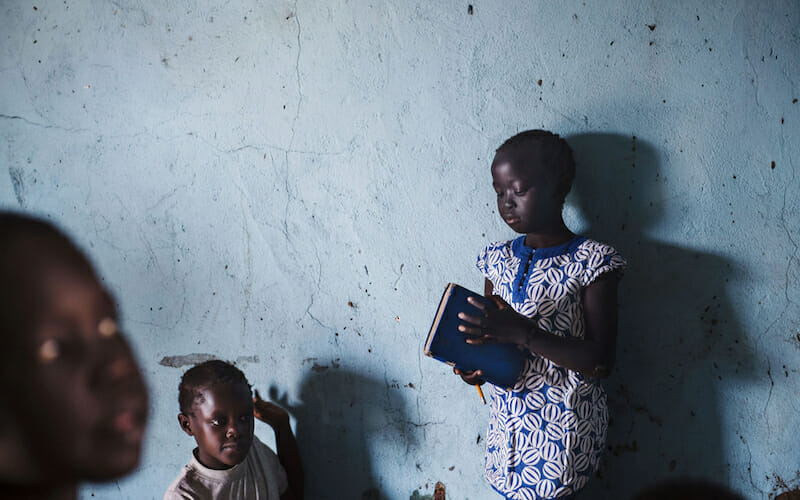
Trump Wrecking South Sudan Peace Deal
Last week, the White House issued a statement on the prolonged civil war in South Sudan, threatening to pull the ripcord on US assistance because of the “non-inclusiveness” of the South Sudanese leadership. These threats must register with irony to the South Sudanese, who have responded with a finger-wagging claim that it is the US that is hindering the peace process.
The charge d’affaires of South Sudan’s embassy in Washington correctly told the press that this will incur unintended consequences, since it may embolden the rebel factions to break the what little fragments of the 2015 agreement that are (arguably) still in place.
Many of the South Sudanese people I know deny that the 2015 agreement has collapsed. The two-time refugee and scholar Benjamin Machar, who just may be the most well-positioned person I have come across, tells me the fact that many of the signatories hate the agreement is a sign of its validity. The parties that signed the agreement are the parties now standing accused of lethal exclusiveness, meaning either that the original agreement was not inclusive or that the US comments are slightly outlandish.
The absence of Riek Machar from the SPLM-IO’s side and Deng Alor on SPLM-FM’s side should not on its own violate the spirit of the agreement. Otherwise, the agreement is more about cultish personal allegiances than peace. In the face of this, the US position, to the pro-government faction, scans as a winking endorsement of the opposition’s narrative. The US should be careful not to cast doubt on the initial agreement, such that they wipe away the negotiations entirely.
Who deserves blame for the mass corruption, starvation and gruesome deaths? Would pulling assistance accelerate or decelerate the atrocity? On both counts, the answer seems discouraging. It might be that the US statement offers a banality with the tone of voice usually reserved for incisiveness. Or, indeed, that the statement is premised on a lie. After all, the Trump administration has hardly tried to make a secret of its distaste for assistance funding. The American government has not been particularly generous to South Sudan. For instance, twilight fell on the refugees from that region prematurely when the US cut the refugee program due to Sudan’s connection to the states sponsoring terrorism list.
But, despite tepid half-measures and ignorant side-choosing, all of which has encouraged destabilization, the US cannot shoulder the brunt of the responsibility for the atrocity. After all, it is true that the South Sudanese government is corrupt and fractious. It is true that people are starving and dying. And the situation drudges on at the expense of the South Sudanese people. The human rights activist and former slave Simon Deng put the South Sudanese argument to me, affectingly, more than a year ago. America has played the role of a midwife, he said. They helped to birth South Sudan, before walking away.
Actually, the efforts of American statesman were more spurred on by the wish to promote American fundamentalism, by Billy Graham’s son among others, than to alleviate suffering or to birth a nation. It seems little has changed. The decision to use the one hand to revoke that act of Christain “charity” gifted by the other comes from an administration beholden to the fundamentalist quarter. Having crawled its way to power through a divisive election, which in traditional fashion excluded both third parties and a serious outside candidate, the Trump administration has now assumed the position of lecturer. Are we now to demand that the Trump administration bed with Clinton staffers? Or that he put Bernie Sanders in his cabinet? If not, by what standard do we draw the line? From its lectern, the administration’s moves look like posturing. Still, it continues to offer moral instruction on the “rightness” of the international balance sheet. And, as Nikki Hailey might put it, they’re paying attention to who votes and how.
Africa remembers, too. And unfortunately for us, that means the evaporation of American influence in an area where we might eventually need some friends. This seems to show that the administration’s parochialisms are global. Even as Nikki Hailey menaces the vulnerable members of the UN, China has made considerable headway in Africa. Perhaps we should all adjust to the new paradigm, in which we are more honest about imperial machinations, and in which Africa is under the wing of China. If those are the objectives, then why even perform this pantomime? All the finger pointing inspires nothing but nausea.

